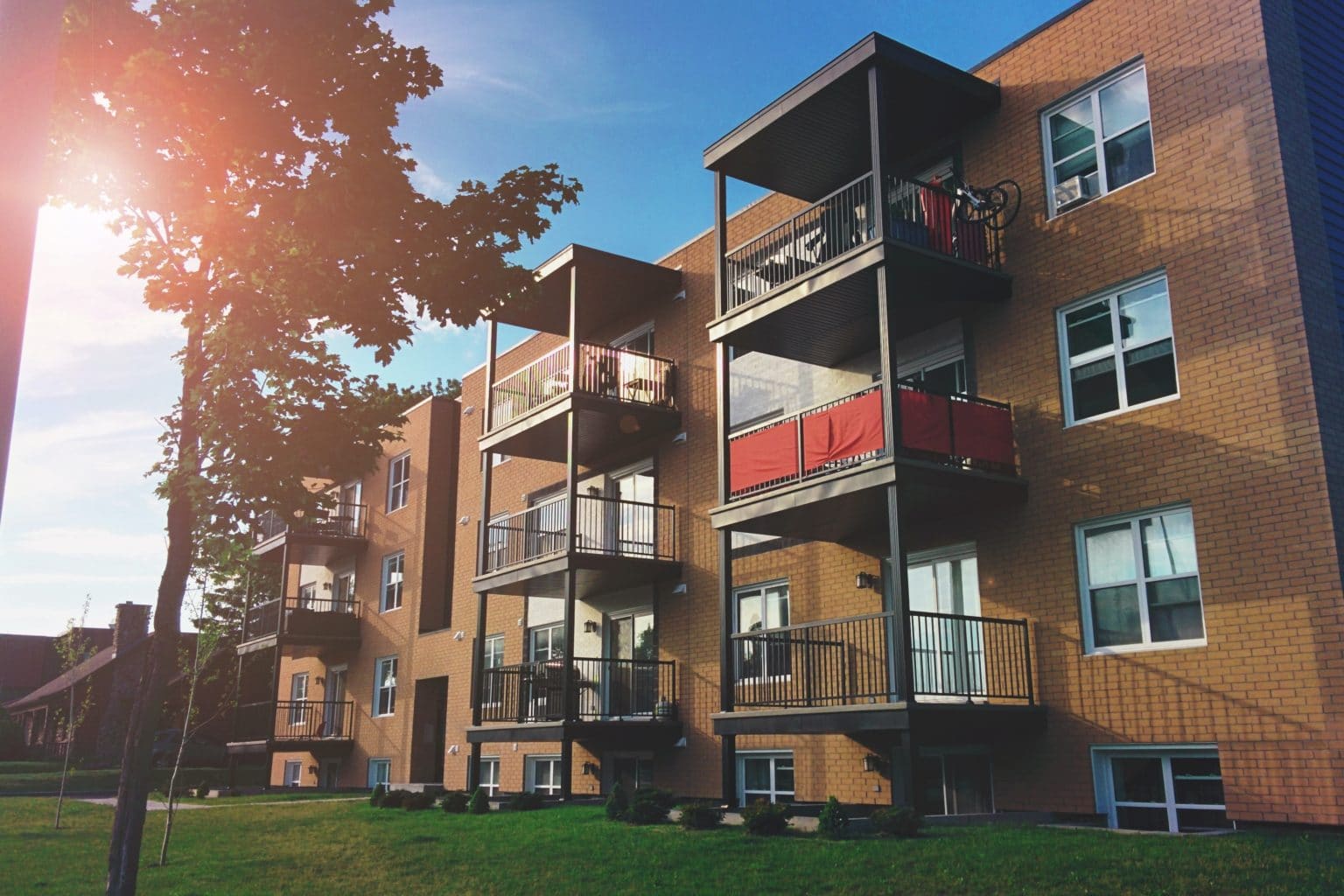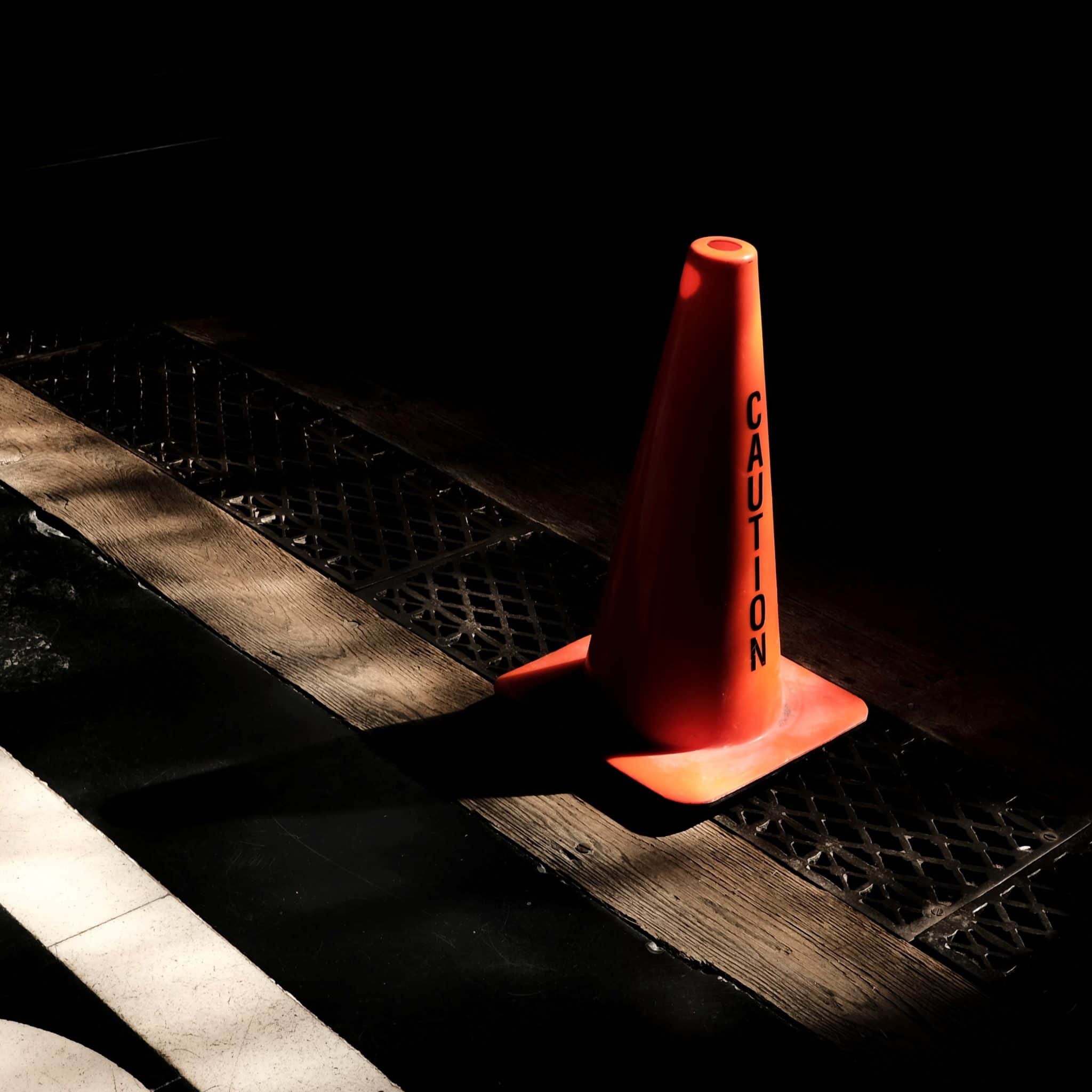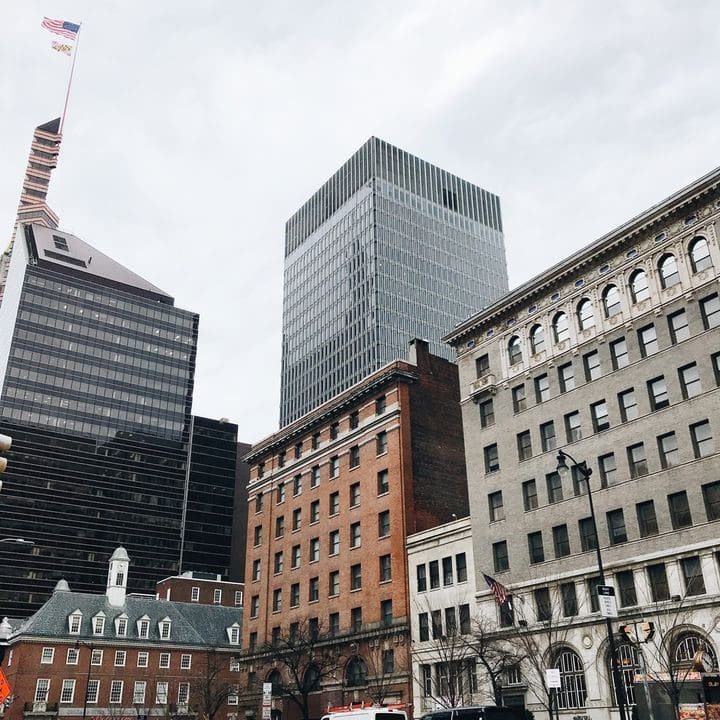Commercial Inspections: Big Projects, Big Risks
Last Updated November 9, 2023

If you are a home inspector, you may have considered commercial inspections as another source of revenue. The transition would seem simple: ensure you are compliant with state regulations, do a bit of marketing, maybe some classes, and you would be good to go—right?
At InspectorPro Insurance, we have seen that commercial inspections are anything but simple. While typical residential inspections may result in expensive claims on their own, commercial inspections dwarf them in comparison. Multi-million-dollar buildings rarely have cheap issues to fix. As lucrative as they may be to inspect, you should never approach them the same way as a residential structure.
“Every [residential] home has a bathroom, a kitchen, and essentially the same components. But commercial inspections are totally different,” said Mike Morgan of Morgan Inspection Services in Texas. “It could be a warehouse, an office building, or an apartment complex, but no two of them are the same. So, it is much more difficult to know what you’re getting into.”
If you are currently inspecting commercial properties, or if you are seriously planning to do so, be prepared. To help you with the big risks that come with big inspections, we will share some advice that we have learned from over 10 years of experience handling commercial inspection claims.
What is a Commercial Inspection?
There are a few different definitions for a commercial property. The International Association of Certified Home Inspectors’ (InterNACHI) sister organization, the Certified Commercial Property Inspectors Association (CCPIA), defines a commercial property as “a building, structures, and improvements located on a parcel of commercial real estate intended to generate a profit.” That could include retail, multi-unit, or office spaces, to name a few.
The definition that affects your inspections and business the most, however, is the definition in your insurance policy. Some policies define commercial properties as anything larger than four residential units or a certain amount of square feet. Other policies may exclude restaurants, warehouses, retail spaces, or other typical commercial spaces, which would leave you without insurance coverage for these buildings in the case of a claim. When deciding whether to offer commercial inspections, ensure that your coverage matches the type of commercial buildings you are planning to inspect.
Basic Parts of a Commercial Inspection
A typical commercial inspection takes these three steps:
- A Walk-Through Survey: This may be as extensive as a residential inspection, or it may be more limited, depending on the scope of the inspection listed in your pre-inspection agreement. You will identify the property’s visual deficiencies and report any systems, components, and equipment specified in your standard of practice (SOP).
- Research: Knowing that commercial buildings switch hands often and are repaired and remodeled during most transitions, it is incredibly important to review documentation. You may do this after your inspection, but you will be more prepared if you review them before performing your walk-through inspection. These documents may be previous reports, permits, or anything that would help you fulfill the scope of your inspection, as discussed with your client and written in your pre-inspection agreement. While reviewing these documents is not something that residential inspection SOPs usually require, you should plan to do so with most commercial inspections. Also be sure to ask your client what they intend to use the property for as it may inform your inspection.
- Property Condition Report: For a report on commercial properties, continue to use the recommendations you have learned in the past for writing residential reports. (Many report writing tips are transferable to commercial inspections). You will include the information from the walk-through survey and research within your report.
Tips to Manage Risk for Commercial Inspections
While commercial inspections may seem similar to residential inspections, do not underestimate the differences. Expecting an easy transition is like owning a sedan and thinking you’ll drive a semitruck comfortably on your first try. The electrical, the HVAC/AC, the roofing, and many other aspects of a commercial structure will be varied and complex. Expect a learning curve.
Commercial inspection claims can be significant due to the size and value of the properties inspected. In addition, commercial property inspections are more likely to result in claims from third parties. After interviewing many inspectors and our claims team, we have compiled a few tips to avoid commercial inspection claims.
 Be Choosy and Cautious.
Be Choosy and Cautious.
Commercial inspections have much greater consequences than residential inspections. For example, if you miss foundation damage in a single-family home, you could be endangering the single family that lives there. If it is a condo complex with many families living in it, as was the case in Florida last summer, many more peoples’ lives are at stake. You need to be aware that the stakes are higher if you mess up. Or, as is more likely, you may get wrapped up in a previously existing condition.
We do not share these facts to dissuade you from offering commercial inspections. Rather, we encourage you to do your research and be picky with what you inspect. If building records show serious issues, and if they may affect many people, you might not want to inspect it. Be aware of the area’s history, and the building’s history, and then make your decision.
Another reason to be cautious and careful when choosing a commercial inspection is because of third-party claims. Residential inspection clients are the primary source of claims for home inspectors—that is not the case with commercial inspections. Third-party individuals—like the residents of condos, the employees in office suites, and visitors—are not technically your clients. (The building owner or their representative was likely your client). And yet, in a commercial inspection claim, some of the people who are most likely to sue you are the families and individuals using those buildings who may have been hurt. If, from your preliminary research, the building seems worn out and has major issues, be cautious. Issue can escalate quickly with parties other than your client.
Stick to Your Standards.
If you use a generic residential pre-inspection agreement and SOP, but perform a commercial inspection, you may compromise your agreement’s safeguarding power. Inspectors performing commercial inspections should utilize a commercial agreement and standard. Whether it’s a standard that you put together yourself or one from a reputable organization, knowing and communicating your standard of practice (SOP) in your pre-inspection agreement and report can make your claims defense.
The following are some of the common commercial inspection standards:
- The American Society for Testing and Materials’ (ASTM) Standard Guide for Property Condition Assessments
- The CCPIA’s International Standards of Practice for Inspecting Commercial Properties (ComSOP)
Specify Your Exclusions.
The commercial inspection standards above provide great foundations. However, we recommend that you specifically exclude anything from your scope that you were not contracted to inspect. Do this for every commercial inspection where your client has expectations that differ from your commercial SOP. Otherwise, claimant may drag you into issues with areas you did not inspect but forgot to exclude on your agreement. Just remember to get an attorney’s help when preparing your pre-inspection agreement.
With commercial inspections, you may be considered liable for areas you were not hired to inspect in the same building if you are not specific enough about your exclusions in your scope. For the best protection, you must specify where you will inspect (which your commercial SOP typically covers), and where you will not inspect (which an exclusion or an addendum that alters the scope of the typical commercial SOP will cover).
Failing to do so, your clients or third-parties might blame you for “obvious issues” that you “should have caught” while you went through the parking garage, lobby, or hallways on the way to your actual inspection location (an office suite or a condo, perhaps). Issues with commercial structures can avalanche and drag you along with them, especially if the building has major issues.
Learn more about exclusions here.
Seek Training.
“Get training. Get your certification because there’s more liability for commercial inspections than there is for home inspections,” said Richard Stockton of A Better Home Inspection Service, LLC in Virginia. “There’s a lot to commercial buildings that you have to know before you can get into them. You just can’t go into it and think you’re going to be able to [inspect] without getting slapped down.”
While your residential inspection training and experience is a solid foundation, commercial-specific training and certification is a must. The standards and scope of commercial inspections can differ in significant ways from those of residential inspections. Training and certification is often the most effective way to learn those nuances.
You might still be on the fence about offering commercial inspections in the first place, though. Training classes can help you decide if they are a good offering for your business. Matthew Cottenham of Trademark Home Inspection, LLC in Michigan suggests taking your training to the next level by shadowing another commercial inspector.
“First take the certification classes just to get a feel for it. Then reach out into your local market and shadow an experienced inspector, because [a commercial inspection] really is a different ballgame.”
Get Help.
Commercial inspections are large undertakings, so consider hiring additional inspectors or subcontractors and experts to assist.
Commercial properties often have unfamiliar commercial-sized electrical, HVACs, plumbing, or other systems that require specialists. In cases like these, you should consider hiring multiple subcontractors (plumbers, electricians, commercial roofers, etc.). They will primarily focus on those systems that are unfamiliar (and expensive when misdiagnosed).
If cost is an issue, know that commercial inspection clients often expect to pay more than a residential inspection client. Include the cost of the subcontractors in the bid. Paul Duffau of Safe@Home Inspections, LLC in Washington has seen how cost cutting and avoiding hiring subcontractors can have negative effects.
“I lost a bid [on a commercial inspection] for being too expensive. Six months later, in the paper, I’m reading that there was deferred maintenance that was unexpected, and lead pipes that were not observed during the inspection process,” Duffau said.
The inspector who performed the inspection seems to have been trying to save costs. They had a lower bid, and they did not hire a plumber, who likely would have caught the lead pipes. While they themselves should not have missed the lead pipes (plumber or no), these kinds of mistakes are common if someone is rushing to finish a large inspection without the appropriate help. Charge enough to perform a thorough inspection.
“There is a reason why you want to spend extra on the inspection. You need to do your full due diligence,” Duffau said.
Safely Hiring Subcontractors
When hiring subcontractors, always have a solid subcontracting agreement in place. The agreement should detail the extent of their duties for the inspection. This will protect you from liability associated with any mistakes they make. You should have an attorney write up the subcontracting agreement. If you wish to further decrease your potential liability, have your subcontractor deliver a separate report of their findings with their company name listed.
Considering insurance, you will want to confirm that your subcontractors have both errors and omissions (E&O) and general liability (GL) coverage of their own. Have them confirm that their coverage works for the type of commercial inspections you need them for. After confirming their insurance, ask them to add you as an additional insured for that inspection. As subcontractors, they will be liable for their own inspection, of course. You, however, may be considered liable for your inspection and theirs since you organized and subcontracted them. When your subcontractors add you as an additional insured, it means you have coverage on their insurance for any claims dealing with the parts they inspected and their report. This should be simple and will provide you with additional peace of mind.
Learn more about the additional insured endorsement here.
Obtain Legal Help.
While insurance is a large part of risk management (which is our next tip), having a lawyer help you with commercial inspections can make a huge difference. As we mentioned before, whenever the scope of a commercial inspection excludes something from your typical commercial inspection standards, you need to incorporate those exclusions into your inspection agreement. A lawyer can help you draft a binding and clear agreement with the discussed scope. Further, a lawyer can help you draft subcontracting agreements that further diminish liability for mistakes made by subcontractors.
 Commercial-Sized Inspections Need Commercial-Sized Protection
Commercial-Sized Inspections Need Commercial-Sized Protection
If you worry about commercial inspections due to the level of risk associated with million-dollar properties, get insurance. While this should not be new advice to you, it can bring a lot of peace of mind. If you perform a mix of both residential and commercial inspections, you need coverage that covers both. Some E&O and GL policies place restrictions on the type of buildings you can inspect —be it a unit cap, a square-footage cap, or other exceptions that exclude commercial inspections. The easiest way to find out if you are covered is to ask your insurer what types of commercial inspections (if any) are covered.
To protect your business from commercial inspection claims, we at InspectorPro created model commercial (and residential) inspection agreements. With over 10 years of experience handling home inspection claims, we’ve used our insight into the most recent claims, case law, and legislation to create up-to-date, state-specific pre-inspection agreements for inspectors like you.
However, always consult an attorney to review and craft your commercial pre-inspection agreement to the specific commercial jobs you perform.
If you’re already a client of ours, you can get a copy of our commercial agreement for free. Request your own here.
Not a client yet but want to be? If you are looking for new coverage, whether residential or commercial, let us help. Fill out our application online.





